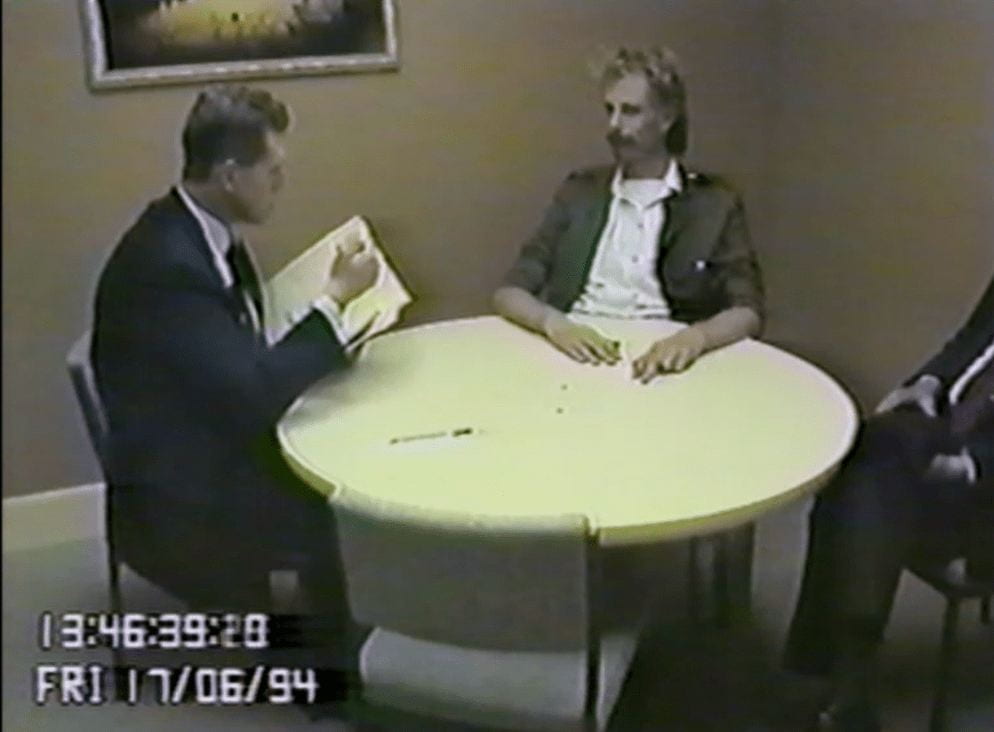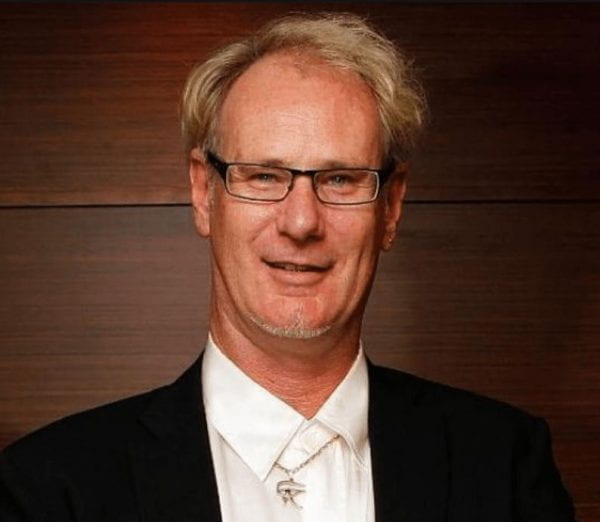There are multiple principles of justice that uphold Australia’s legal system, such as the presumption of innocence, an impartial judiciary and that everyone is equal before the law. The case of Andrew Mallard was studied to analyse how these principles were both supported and compromised. Justice is the idea and concept that everyone should be treated fairly and with equality. It is extremely important that justice is served and upheld in court procedures so that everyone is treated with respect and their rights are protected. In the Andrew Mallard case, justice was mostly compromised.
On 23 May 1994, Pamela Lawrence was bludgeoned on the head and killed in her own jewellery shop. This was a horrible shock to the whole of the Western Australian community and there was a large amount of pressure on the police to find and identify the killer. Along with 136 other people Andrew Mallard was seen as a possible suspect as he had a previous record of petty crimes around that area, was homeless and was also mentally ill. He was convicted of murdering Mrs Lawrence and sentenced to life imprisonment due to information the police withheld during the court trial.
The Australian legal system is founded on the principle that all individuals must be treated equally before the law. This means that when dealing with the legal system all people should be treated fairly regardless of colour, ethnicity, gender, income level, or mental capacity. This is a fundamental principle as some individuals may be disadvantaged in understanding our legal system. This principle ensures that everyone is treated respectfully and fairly by the Australian legal system without being disadvantaged. Equality before the law was compromised during Andrew Mallard’s case as when the accused was interviewed, he was not mentally stable and had no legal aid. On May 26, 1994, Mallard got released from his mental hospital and was brought by the police to be questioned on the premise of Pamela Lawrence’s death. During this time Mallard was not mentally stable and therefore he should have had the assistance and support of a legal aid, guardian, psychiatric nurse, or someone else during the interview. This was discriminatory as the police convinced him to agree to statements such as the way the back door of the jewellery shop opened; these statements were used in the criminal trial since only the true killer would know these facts. Mallard was also appointed to be guilty before anything got proven in court, on this basis the police tampered with proof to match their assumptions. The police also took advantage of Mallard as he was homeless and a drug addict. They did this by using an undercover police officer to pose as Andrew’s friend. First, the officer gave drugs to Mallard and proceeded to give him a ring from Pamela’s jewellery shop. Mr Mallard was meant to be arrested with the ring that next morning though fortunately he got drunk and misplaced it that night. Though this principle was not supported during Mallard’s case, it can be improved if everyone who is disadvantaged by the legal system needs to be provided with assistance.

The right to sufficient legal representation was comprised. This principle specifies that the accused is permitted to have knowledgeable legal representation and that they have the right to request an alternative representation if they feel their current representation is inadequate. This is crucial because if one side has attorneys and a legal team with fewer resources and expertise than the other, it might severely disadvantage them. It would take a lot of effort to present the evidence to the jury in a convincing manner because murder trials are frequently highly complex. During the Mallard case, this principle was jeopardised when Patrick Logan, sought the assistance of a more senior attorney after realizing that he lacked sufficient knowledge of Supreme Court processes or the gravity of this matter. Though the request was denied, effecting Mallard in the initial court trial as the skill set and experience of his lawyer, were very low compared to the prosecution. When Mallard’s family asked John Quigley and Malcolm McCusker QC to become involved and represent Mallard in the High Court appeal, justice was finally upheld. With their knowledge, they were able to identify weaknesses in the prosecution’s case, identify more injustices in the legal process, and apply their creative thinking to overturn Mallard’s conviction. The legal system permitted John Quigley and Malcolm McCusker to aid the defence, upholding the ideal of adequate legal counsel in this case. This concept may be strengthened so that all requests for a more experienced person are granted, especially for individuals who are disadvantaged in the Supreme or High Court, as it was not fully enforced in the Mallard case.
In the Andrew Mallard case, the principle of justice known as an independent and unbiased judiciary was compromised. This principle means that a judge and jury cannot be influenced to vote or accept bribes by the government or others; instead, they must base their verdict on the facts and evidence given in the case. This is what is meant by an independent and impartial judiciary. This is crucial because the jury may imprison an innocent man if they find a defendant guilty due to a bribe of money. The Andrew Mallard case serves as an illustration. Because the case was made public before the trial, the media had already published blogs about it that circulated incorrect information. The numerous websites that offer rumours and hypotheses on why Andrew was guilty might serve as an illustration of this. These social media rumours were being used as evidence by the authorities. This implied a breach of the justice concept known as an impartial, independent judiciary. On the other hand, it was also supported since the judge instructed the jury to base their decision only on the facts, therefore the judge was primarily responsible for upholding the concept. Justice was only partially upheld, and this concept was severely violated.
Another breach of the principles of justice was high-quality evidence. High-quality evidence requires all evidence presented during a trial must be reliable and relevant to the case in question. The jury and judge base their decisions of whether the accused is guilty or not guilty on the evidence presented, making this a very valuable principle. Due to the evidence being altered by the authorities and being withheld during the trial in this case, this principle was violated. During an interview Mallard drew a wrench and claimed it to be the murder weapon, this was presented in the trial as evidence even though it was not proof. A test was conducted by a forensic pathologist which determined that the wounds found on the victim could not have been caused by the wrench Mallard drew. These results were never presented to the court during Mallard’s trial. Another example of evidence that was tampered with by police was a witness statement of 13-year-old Katie Barsdon. Katie stated that at 5:02 pm she was driving past Pamela Lawrence’s shop, at the time she noted Mallard was nowhere near Pamela’s shop. Katie described a man she saw who was distinctly different to Mallard though the police never revealed this to Andrew since it was proof against the sentence. More evidence like many key witness statements, the saltwater test done on Mallard’s clothes, and the description of the room and murder weapon described by Mallard being different to the actual facts was either not revealed during the initial trial or was tampered with. If in future cases evidence is not tampered with or hidden from the jury and judge during the trial, then this principle could be drastically improved. The principle was heavily compromised, due to vital evidence being withheld or altered.
If the defendant or the prosecution are dissatisfied with the outcome of the trial, they can take the matter to a higher court and request a retrial under the basic right to appeal. This is significant because wrongfully convicted individuals may be imprisoned for a crime they didn’t commit if they made it so that nothing further could be done following every trial. The release of Andrew Mallard from prison following several appeals to the Supreme Court serves as an illustration of this idea. They allowed him to appeal to higher courts, which ultimately led to his release from prison, demonstrating their support for this idea. The fact that some of the appeals were rejected or failed to free him from prison, demonstrates that appeals are not always successful, which is why the principle was compromised. Justice was mostly upheld in the case; however, the premise was slightly compromised.
Everyone is entitled to the right to remain silent at any stage of the legal process when being questioned by law enforcement or court personnel. This principle is crucial because it prevents self-incrimination. This premise was completely broken in the instance of Andrew Mallard, who was forced into answering questions by the authorities. He was detained by the police for eight hours as they forced him to respond to all of their questions. He was unable to refuse the queries because neither his family, legal counsel nor even a hospital nurse knew of this. If Mallard resisted, he would also be physically punished. This is another way that justice was not served through the right to silence.
If one person is accused of a crime in Australia, they have the right to be given a fair hearing/trial in which the prosecutor presents evidence to the court to prove the
defendant’s guilt. The accused person doesn’t have to prove their innocence as they should be presumed innocent. Andrew Mallard suffered from schizophrenia, a mental illness that causes him to be unable to think clearly. In this case, he received no assistance with his condition, putting the principle in jeopardy. Also, during the trial, the police concealed crucial material that could have swayed the case in the defendant’s favour. The principle was supported as the court offered both sides a chance to participate in the case rather than allowing only one party to speak.
Over 12 years Andrew went through many appeals and fighting for his rights, but he was eventually allowed to go on with is life in 2006 after all the accusations against him were withdrawn and he was freed from jail. Mallard graduated from college with a degree in fine art and moved to London to begin a master’s programme after receiving $3.25 million in compensation from the Western Australian government. He claimed that he was no longer able to live in Perth because some members of the public still treated him like a murderer. Mallard frequently visited the US because his fiancé resided there, but it was also there that he tragically passed away at the age of 56 in an awful vehicle accident.
The principles discussed above are some of the many the Australian legal system has, even though they are not always followed as outlined in Andrew Mallard’s case. They are a good structure that the Australian legal system aims to follow. Overall, the concepts of equality before the law, the right to adequate legal representation and trustworthy evidence were not strictly upheld in the Mallard case. The legal system is progressively getting better and by acknowledging the grave errors made in earlier cases where justice was seriously compromised, we can strengthen the fundamentals of justice to guarantee that justice is upheld in cases that arise in the future.

